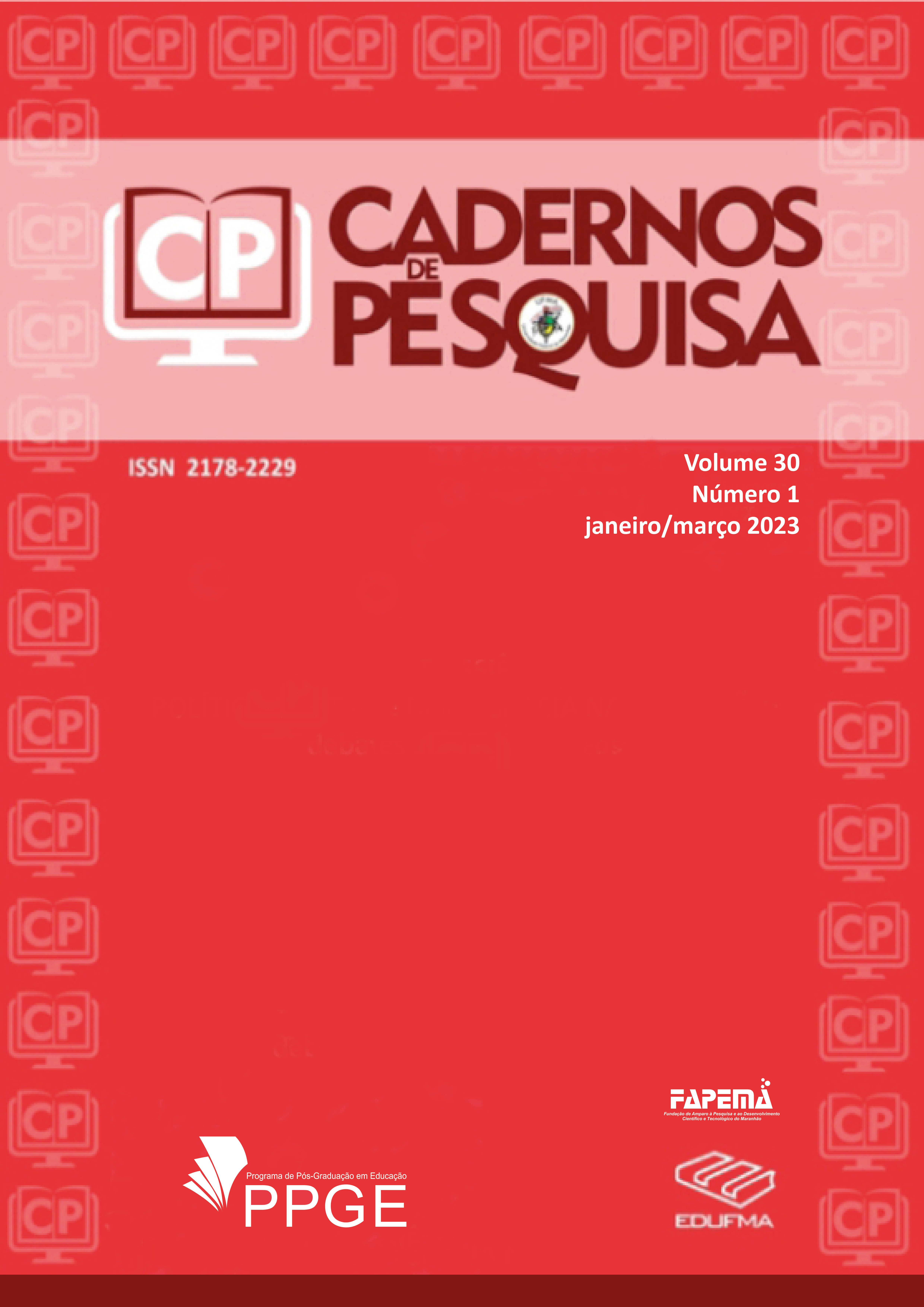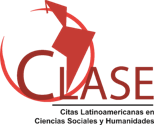English Mobilities, Communication and Intercultural Education
Contemporary Global Challenges
DOI:
https://doi.org/10.18764/2178-2229v30n1.2023.17Keywords:
Migrations, Interculturalism, Communication and intercultural education, Intercultural competences, Digital communicationAbstract
Migrations, interculturalism and digital and intercultural communication are domains heavily present in the social and political discourses of the last and first decades of the 20th and 21st century, respectively, at the level of various sectors, and in the communication, intercultural and educational paradigms nowadays. Cultural diversity, a multicultural and network society, the Internet, the development of digital information and communication technologies, the inclusion of these technologies in education and teaching gave origin to new forms of relationship, communication and learning. They also gave origin to major changes in society and social organisations, particularly in education, environments where interculturalism and student mobility have been increasing. In this article, some of these questions will be discussed, which are raised in a contemporary framework, and we will also analyse policies, strategies and competences which may help professionals who work with migrants, refugees and ethnic/cultural minorities to better interact with this population, fostering their welcoming and social inclusion as well as promoting coexistence, communication and intercultural education, and the development and wellbeing of everybody, regardless of their cultural or social origin.
Downloads
References
AMERICAN PSYCHOLOGICAL ASSOCIATION/APA. Guidelines on Multicultural Education, Training, Research, Practice, and Organizational Change for Psychologists, American Psychologist, v. 58, n. 5, p. 377-402, 2003.
BENNETT, M. J. Basic Concepts of Intercultural Communication. Paradigms, Principles & Practices. Boston: Intercultural Press, 2013.
BERRY, J. W. Immigration, acculturation and adaptation. Applied Psychology, v. 46, n. p. 5-68, 1997.
BERRY, J. W. Mutual Intercultural Relations in Plural Societies. Cambridge: Cambridge University Press, 2017.
BOURHIS, R.; MOISE, C.; PERRAULT, S.; SENECAL, S. Towards an interactive acculturation model: A social psychological approach. International Journal of Psychology, v. 32, p. 369-386, 1997.
BRISLIN, R.; YOSHIDA, T. Intercultural Communication Training: An Introduction. Thousand Oaks, CA: Sage, 1994
BYRAM, M. Teaching and Assessing Intercultural Communicative Competence. Clevedon: Multilingual Matters, 1997.
CASTELLS, M. Sociedade em Rede. São Paulo: Paz e Terra, 1999
CASTLES, S. Understanding Global Migration: A Social Transformation Perspective. Journal of Ethnic and Migration Studies, v. 36, n.10, p. 1565-1586, 2010.
COHEN-ÉMERIQUE, M. Travailleurs sociaux et interculturel : Quelle démarche ? F. GRONG-DAHMANE (Ed.), Enfants d´Ici, Enfants d´Ailleurs. Ramonville Sainte-Agne : Érés, 1993.
COHEN-ÉMERIQUE, M. La formation des formateurs et des travailleurs sociaux. J. DEMORGON ; E. LIPIANSKY (Ed.), Guide de l´ Interculturel en Formation. Paris : Retz, 1999.
COUNCIL OF EUROPE. Diversity and Cohesion: New Challenges for the Integration of Immigrants and Minorities. Strasbourg: CE, 2001.
COUNCIL OF EUROPE. White Paper on Intercultural Dialogue - Living Together as Equals in Dignity. Strasbourg: CE, 2008.
DEARDORFF, D. K. Identification and assessment of intercultural competence as a student outcome of internationalization. Journal of Studies in Intercultural Education, n.10, p. 241-266, 2006.
DEARDORFF, D. K. The Sage Handbook of Intercultural Competence. Los Angeles : Sage, 2009.
DEVEREUX, G. Ethnopsychanalyse Complémentariste. Paris: Flammarion, 1992.
EUROBAROMETRO ESPECIAL 469. Integration of Immigrants in the European Union Report. Luxemburgo: Gabinete de Publicações da Comissão Europeia, 2018.
INTERNATIONAL ORGANIZATION FOR MIGRATION /IOM. World Migration Report. Geneva: IOM, 2020.
LADMIRAL, J. ; LIPIANSKY, E. La Communication Interculturelle. Paris: Armand Colin, 1992.
MORAN, J. M. Novas Tecnologias e Mediação Pedagógica. Campinas: Papirus, 2001
MOSCOVICI, S. Representações Sociais. Investigação em Psicologia Social. Petrópolis: Ed. Vozes, 2005.
OCDE. Regards sur l’Education. Indicateurs 2020 OCDE. Paris : OCDE, 2020.
OCDE. International Migration Outlook. Paris : OCDE, 2013, 2014, 2017, 2020.
OIM. État de la migration dans le monde 2020. Genève: OIM, 2020.
OLIVEIRA, C.R. (Coord.). Indicadores de Integração de Imigrantes. Relatório Estatístico Anual 2020. Lisboa: ACM, 2020.
OLIVEIRA, C. R. Indicadores de Integração de Imigrantes. Relatório Estatístico Anual 2021. Lisboa: ACM, 2021.
PAILLARD, S. Differences in language, religious beliefs and culture: the need for culturally responsive health services. B. RECHEL et al (Ed.), Migration and Health in the Europe Union. New York: McGraw Hill, 2011.
PHINNEY, J.; HORENCZYK, G.; LIEBKIND, K.; VEDDER, R. Ethnic identity, immigration and well-being: an interac¬tional perspective. Journal of Social Issues: Immigrants and Immi¬gration, v. 57, n. 3, p. 493-510, 2001.
PNUD. Liberdade Cultural num Mundo Diversificado. Lisboa: Ed. Mensagem, 2004.
PNUD. Lever les Barrières. Mobilité et Développement Humain. Paris : La Découverte, 2009.
RAMOS, A. ; MAGALHÃES, P. European Values Study. Relatório do Estudo dos Valores Europeus 2017-2019. Lisboa: Gulbenkian Studies, 2020.
RAMOS, M. C. P. Mobilidade humana internacional, políticas migratórias e direitos humanos: avanços e recuos. Revista de Políticas Públicas, v. 24, n. 1, p. 405-421, 2020.
RAMOS, N. Comunicação, cultura e interculturalidade: Para uma comunicação intercultural. Revista Portuguesa de Pedagogia, v. 35, n. 2, p. 155-178, 2001.
RAMOS, N. Communication, éducation et interculturalité. Vers une éducation à la tolérance. Dialogos, v. 5, p. 68-75, Bucarest, 2002.
RAMOS, N. Interculturalité, Communication et Éducation. Bucarest : Ed. Melina Press, 2003.
RAMOS, N. Migração, aculturação, stresse e saúde. Perspectivas de investigação e de intervenção. Psychologica, n. 41, p. 329-355, 2006.
RAMOS, N. Sociedades multiculturais, interculturalidade e educação. Desafios pedagógicos, comunicacionais e políticos. Revista Portuguesa de Pedagogia, v. 41, n. 3, p. 223-244, 2007.
RAMOS, N. (Org.) Saúde, Migração e Interculturalidade. Perspectivas Teóricas e Práticas. João Pessoa: EDUFPB, 2008a.
RAMOS, N. A diversidade cultural na cidade: Problemas e desafios. L. RUBIM; N. MIRANDA (Org.), Transversalidades da cultura. Salvador: EDUFBA, p.133-179, 2008b.
RAMOS, N. (Cord.). Educação, Interculturalidade e Cidadania. Bucareste: Milena Press, 2008.
RAMOS, N. Diversidade cultural, educação e comunicação intercultural. Políticas e estratégias de promoção do diálogo intercultural. Revista Educação em Questão, v. 34, n. 20, p. 9-32, 2009.
RAMOS, N. Interculturalidade e alteridade. J. SERAFIM; L. TOUTAIN (Org.), Culturas, Percepção e Representações. Salvador: EDUFBA, p. 27-55, 2010.
RAMOS, N. Educar para a interculturalidade e cidadania: Princípios e desafios. L. ALCOFORADO et al. (Org.), Educação e Formação de Adultos. Políticas, Práticas e Investigação. Coimbra: Ed. da Universidade de Coimbra, p. 189-200, 2011.
RAMOS, N. Interculturalidades e mobilidades no espaço europeu: Viver e comunicar entre culturas. H. PINA, F. MARTINS, C. FERREIRA (Eds.). Grandes problemáticas do espaço europeu: estratégias de (re)ordenamento territorial no quadro de inovação, sustentabilidade e mudança. Porto: Faculdade de Letras, UP., p. 343-360, 2013.
RAMOS, N. Conflitos interculturais no espaço europeu. Perspetivas de prevenção e intervenção. H. PINA; P. REMOALDO; M.C. RAMOS; H. MARQUES (Org.), The Overarching Issues of the European Space: The Territorial Diversity of Opportunities in a Scenario of Crisis. Porto: Faculdade de Letras, Universidade do Porto, p. 225-245, 2014.
RAMOS, N. Tecnologias digitais de informação e comunicação, interculturalidade e formação docente”. EDAPECI, Revista de Educação a Distância, Práticas Educativas, Comunicacionais e Interculturais, UFS, v.16, n.1, p. 9-30, 2016.
RAMOS, N. Comunicação em saúde, interculturalidade competências: desafios para melhor comunicar e intervir na diversidade cultural em saúde. M. L. RANGEL; N. RAMOS (Org.), Comunicação e Saúde. Perspectivas Contemporâneas. Salvador : EDUFBA, p.149-172, 2017.
RAMOS, N. L'intégration des migrants et des réfugiés dans les villes : Droits de l'homme, politiques publiques et santé. M. EZZAHIRI (Dir.), Actes du Colloque International sur Dynamiques Migratoires Sud-Sud et Intégration des Immigrées Subsahariens dans les Sociétés d´Accueil. El Jadida: CNRST et Edition Pariscom, p. 79-102, 2020a.
RAMOS, N. Desafios globais contemporâneos da comunicação e da saúde das populações migrantes e refugiados. Revista Latinoamericana de Ciencias de la Comunicación, ALAIC, São Paulo, v. 19, n. 35, p.38-49, 2020b.
RAMOS, N. Populações migrantes em tempos de pandemia da covid-19: desafios psicossociais, comunicacionais e de saúde. M. ENNES; A. GOES; C. MENESES (Org.), Migrações internacionais sob múltiplas perspectivas. Aracaju: Criação Editora, p. 153-176, 2021.
RAMOS, M. N. P.; LOPES, A. C. Desafios da Educação a Distância em Tempos de Pandemia. A. L. OLIVEIRA; J. A. SCHÜTZ; M. A. AMARAL (Org), Vozes da Educação. Pesquisas e Escritas Contemporâneas. Vol. 2. Cruz Alta: Editora Ilustração, p. 117-138, 2021.
RIDLEY, C.; KLEINER, A. Multicultural counseling competence: History, themes, and issues. D. POPE-DAVIS et al. (Eds.), Handbook of Multicultural Competencies in Counseling & Psychology. California: Sage, p. 3-20, 2003.
ROGERS-SIRIN, L. Approaches to multicultural training for professionals. Professional Psychology: Research and Practice, v. 39, n. 3, p. 313-319, 2008.
SMITH, R.; KHAWAJA, N. A review of the acculturation experiences of international students. International Journal of Intercultural Relations, v. 35, p. 699-713, 2011.
SPITZBERG, B.; CHANGNON, G. Conceptualizing intercultural competence. D. DEARDORFF (Ed.), Handbook of Intercultural Competence. Washington DC: Sage Publications, p.2-52, 2009.
STUART, R. Twelve practical suggestions for achieving multicultural competence. Professional Psychology Research and Practice, v. 35, p. 3-9, 2004.
SOBRAL, M. N.; RAMOS, N. Processo de Bolonha e internacionalização do ensino superior. Revista Tempos e Espaços em Educação, v. 8, p. 107-115, 2012.
SUE, D.; ARREDONDO, P.; MCDAVIS, R. Multicultural counseling competencies and standards: A call to the profession. Journal of Counseling & Development, v. 70, p. 477-486, 1992.
SUE, D. Multidimensional facets of cultural competence. The Counseling Psychologist, v. 26, p.790-821, 2001.
SZŰCS, T. The cultural integration of immigrants and refugees: shifting narratives and policies in the European Union. R. BAUBOCK; M. TRIPKOVIC (eds), Integration of migrants and refugees. An EUI Forum on Migration, Citizenship and Demography. Florence: European University Institute, p. 144-151, 2017.
UNESCO. Déclaration Universelle sur la Diversité Culturelle. Paris: UNESCO, 2001.
UNESCO. Intercultural Competences. Paris: Intersectoral Platform for a Culture of Peace and Non-Violence, Bureau for Strategic Planning, 2013.
UNESCO. Supporting Teachers in Back-to-School Efforts: Guidance for Policy
Makers. Paris: 2020a.
UNESCO. COVID-19 Impact on Education. Paris: 2020b.
UNITED NATIONS. The 2030 Agenda for Sustainable Development .UN: Department of Economic and Social Affairs, 2015. https://sdgs.un.org/goals
VERKUYTEN, M. The Social Psychology of Ethnic Identity. New York: Psychology
Press, 2018.
WIT, H.; HUNTER, F. The future of internationalization of higher education.
International Higher Education, n. 83, p. 2-3, 2015.
XIONG W.; MOK K. H.; KE G.; CHEUNG J. O. Impact of COVID-19 Pandemic on International Higher Education and Student Mobility: Student Perspectives from Mainland China and Hong Kong. Working Paper No. 54. University of Oxford: Centre for Global Higher Education, 2020.
WADE, J. The issue of race in counseling psychology. The Counseling Psychologist,
v.33, n. 4, p. 538-564, 2005.
WARD, C.; GEERAERT, N. Advancing acculturation theory and research: the
acculturation process in its ecological context. Current Opinion in Psychology, v. 8,
p. 98-104, 2016.
WATERS, J. Covid-19 and International Student Mobility. Some reflections. London
School of Economics Southeast Asia Blog, 2021.
https://blogs.lse.ac.uk/ seac/2021/01/05/covid-19-and-international-student-mobility-
some-reflections/.
WEAVER, H. Striving for cultural competence: Moving beyond potential and transforming the helping professions. R. DANA & J. ALLEN (Eds.), Cultural Competency Training in a Global Society. New York: Springer, p. 135-155, 2008.
Downloads
Published
How to Cite
Issue
Section
License
Copyright (c) 2023 Cadernos de Pesquisa

This work is licensed under a Creative Commons Attribution 4.0 International License.
A Cadernos de Pesquisa está licenciada com uma Licença Creative Commons Atribuição 4.0 Internacional.




















